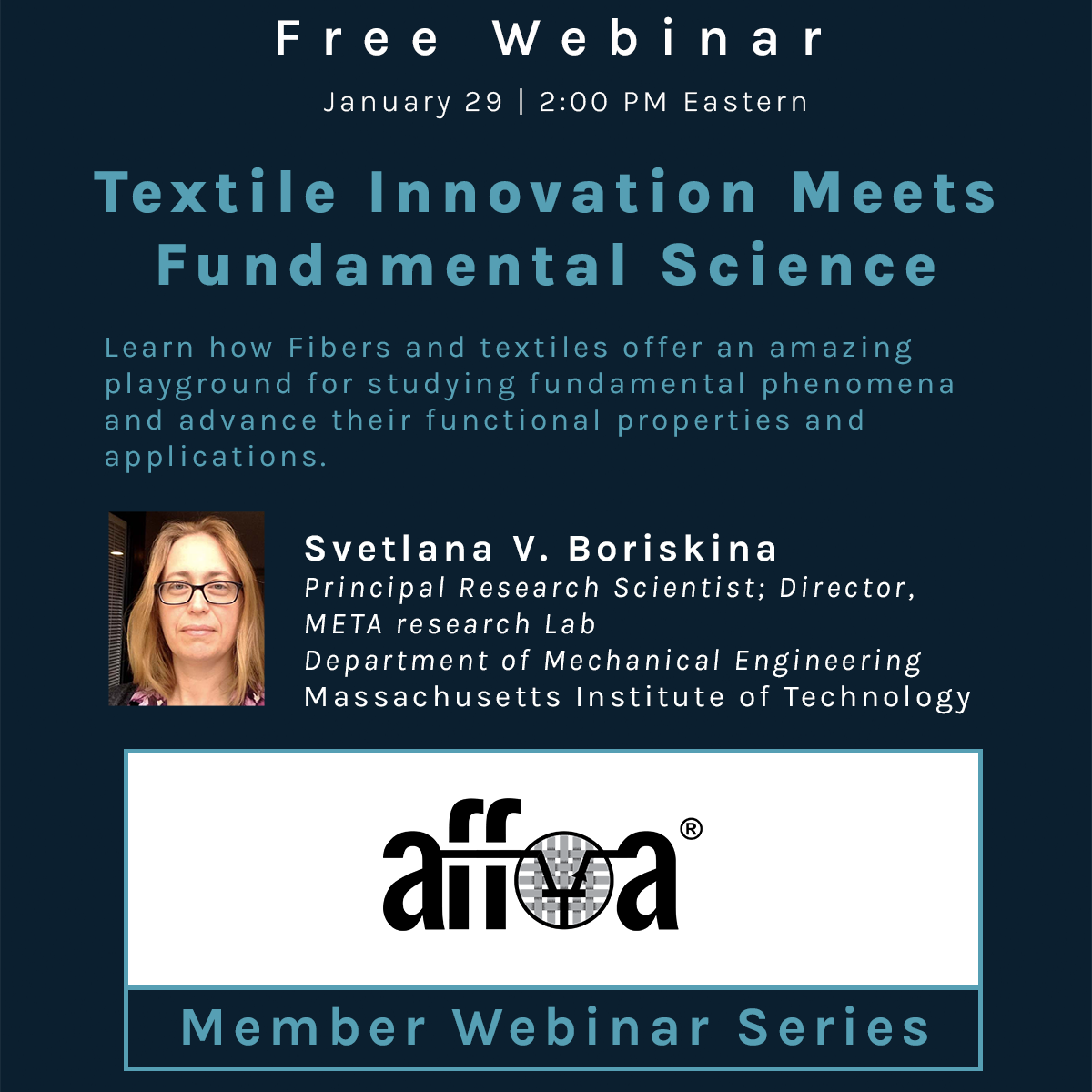Textile Innovation Meets Fundamental Science
January 29 @ 12:00 pm - 1:00 pm

Nowadays, textile and fiber research is considered a very applied field, which is hardly surprising given how old and mature the global textile industry is.
Historically, however, inventions that led to textile innovations have been often of fundamental nature, and many even recognized by Noble prizes in chemistry and physics.
In this webinar, Dr. Svetlana V. Boriska makes the case that fibers and textiles still offer an amazing playground for studying fundamental phenomena, which in turn may lead to advances in their functional properties and applications.
In the Multifunctional Metamaterials (META) Lab at MIT, fibers and fiber-derived materials are engineered from the bottom up, and aim to unlock new functional performance through fundamental insights into their meso-scale structure, viscoelastic properties, radiation-matter interactions, etc. I will highlight a few examples of our completed and ongoing projects, including engineering new fibers as a solid-state replacement for the HVAC technology, tailoring interfacial moisture transport phenomena, modifying neutron-matter interactions, and leveraging computer-vision-augmented AI techniques and graph theory for generative design of textiles and studies of their degradation pathways.
They are always open for collaborations, and will give an overview of their capabilities, including manufacturing, characterization, and modeling tools we can leverage to advance joint projects with industry, military, and national labs.
For more information, please visit https://sites.mit.edu/metalab/, check out the textile-focused project portfolio, and explore a new MITx course to advance your knowledge in fiber and textile innovations.
About the presenter:
 Svetlana V. Boriskina
Svetlana V. BoriskinaPrincipal Research Scientist; Director, META research Lab
Department of Mechanical Engineering,
Massachusetts Institute of Technology

